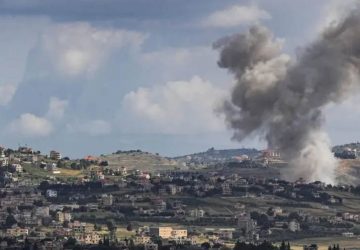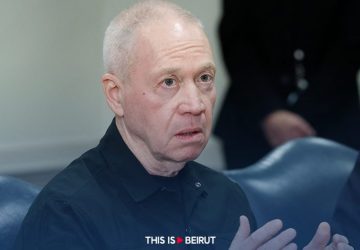Listen to the article
One wonders why it was assumed that this war was unlikely to stretch out and why Israel’s reaction to October 7, 2023 was going to be muted or limited. The reason is simple: observers outside Israel have failed to understand the magnitude of this massacre, grasp its nature and come to terms with its manifold consequences on Israel’s national and existential security. Some have reacted as if Israel has no right to defend itself, to redress the occasional lapses made possible by its ideological and political conflicts and to address the long-term strategic imponderables. As long as observers and actors continue to dismiss these variables and assign them to irrelevance, the misunderstandings will perpetuate and the proper tackling of this conflict will likely be indefinitely deferred.
Otherwise, the cumulative tragedies in Gaza are unlikely to end unless Hamas and its acolytes refrain from instrumentalizing the civilian population to further their political ends and privilege the population’s security over their own. The original sin of Hamas lies in its deliberate overlooking of civilian security and its arrogant dismissal before engaging in the lethal and hazardous course. The rising civilian casualties ascribe to an intentional policy of victimization which serves Iranian power politics and dovetail with the new Cold War strategic configurations and the vicissitudes of a total war. To boot, the ecology of the ongoing conflicts is quite decisive since the undifferentiated civilian and combat zones and the instrumentation of health, educational and humanitarian infrastructures are part of an integrated war strategy and its attending risks. Nobody can assume that Hamas and its handlers were ignorant about the well-sought outcomes of this war undertaking, and they still moved on with their objectives. The amount of lethality and destruction was consented to and voluntarily sought.
The accruing tragedies have led to clashing interpretations and contrasting proposals in order to put an end to the open-ended cycles of violence and contain the ongoing tragedies. What they have failed to understand is the connection between the excruciating humanitarian travails and the unyielding attitude of Hamas refusing to disengage from a lost war and put an end to the carnage mainly defrayed by the civilians, destroying the prospects of a viable Gaza. The blatant political cynicism and its impact on what’s left of Gaza has nothing to do with national aspirations and security concerns and is definitely tied to regional power politics and to the overriding nihilistic culture nurtured among Palestinian militants for generations. The same dramas kept repeating over and over between their different aisles, in the various camps abroad as amply testified in Jordan (1970), Lebanon (1965-1990 and intermittently ever since), Syria (throughout the Syrian Civil War) and Gaza (2007 and its aftermath, the current episode).
The battle of Rafah is inevitable since Israel cannot backtrack on national security and settle for a muddled post-war predicament. Any serious solution should be based on an integrated security strategy in which strategic and humanitarian considerations interlock. The pressure on narrowing the radius of human casualties is imperative. Still, it will never obviate the need for a military defeat of Hamas and the destruction of its operational infrastructure. If Hamas is to be careful about Palestinian lives, it should negotiate its surrender, leave the district and spare what’s left from future tragedies.
The Lebanese context has similarities with the Gaza scenario: both Lebanese and Palestinians are hostage to Iranian power politics instrumentalizing both terrains to serve its power projections and advance its imperial objectives. Lebanese have opposed Hezbollah’s political drive and thwarted its ability to impose its priorities despite the takeover of State institutions. The chances of accommodating Hezbollah’s strategic challenges belong to a different era for Israel and tally with the utmost yearnings of the majority of non-Shiite Lebanese and a growing portion of Shiites, whatever their political suasion. Lebanese are war-weary and averse to the criminal recklessness demonstrated throughout the last six decades by Cold War Leftism, Palestinian militancy and Iranian subversion politics.
The battle of the South is already on track and can hardly be avoided, unless a security zone which likens the one created between 1985-2000 is reinstated, Hezbollah disarms, the Lebanese State recovers its sovereignty, the South of Lebanon security is fully entrusted to UNIFIL and the international resolutions are fully implemented (1701, 1559, 1680…). Lebanon cannot survive the shifting fortunes of Iranian power politics and perpetuate its hybrid status of curtailed and discretionary sovereignty. Unfortunately, the security issues at stake reflect Lebanon’s inability to overcome its self-defeating national and political contradictions and engage regional security issues on a consensual basis, at a time when Hezbollah power politics piloted by Iran are dismissive of Lebanese sovereignty, national priorities and concerns.
The last salient feature of the ongoing dynamics relates to the ideological annexation of the Israeli-Palestinian conflict by wokeism and its instrumentation by leftist political agendas in various Western democracies, and more specifically in the United States where it reflects the contrasting power strategies of recently established Muslim communities and their underlying ideological subtexts and political agendas in the aftermath of the 9/11, 2001 terror attacks. The extreme radicalization of student movements on campuses is reflective of the aporias of non-discursive and controversial multiculturalism, the civil war-prone radicalization taking hold of domestic politics, the relative decline of bipartisanship in the Beltway politics and their exploitation by the new Cold War actors. The US is reliving episodes similar to the Vietnam War contestations on campuses, intertwined with “the intersectionality” of wokeism blending disparate issues into a uniform conflictual dynamic.
This war should end with a new geo-strategic framework that opens up the door for a renegotiated peace agreement between Israel and the Palestinians, the containment of the Iranian Islamic regime subversion politics and the resurgence of democratic reformism ushered with the “Arab Spring” and smothered by Islamic power politics. The US has vetoed Palestine’s full request for full UN membership, awaiting political and military evolutions and their impact on the overall dynamics and future political configurations. The end of the Israeli-Palestinian conflict is contingent upon effective conflict resolution and paradigmatic changes throughout the ideological and political landscape in the Middle East.





